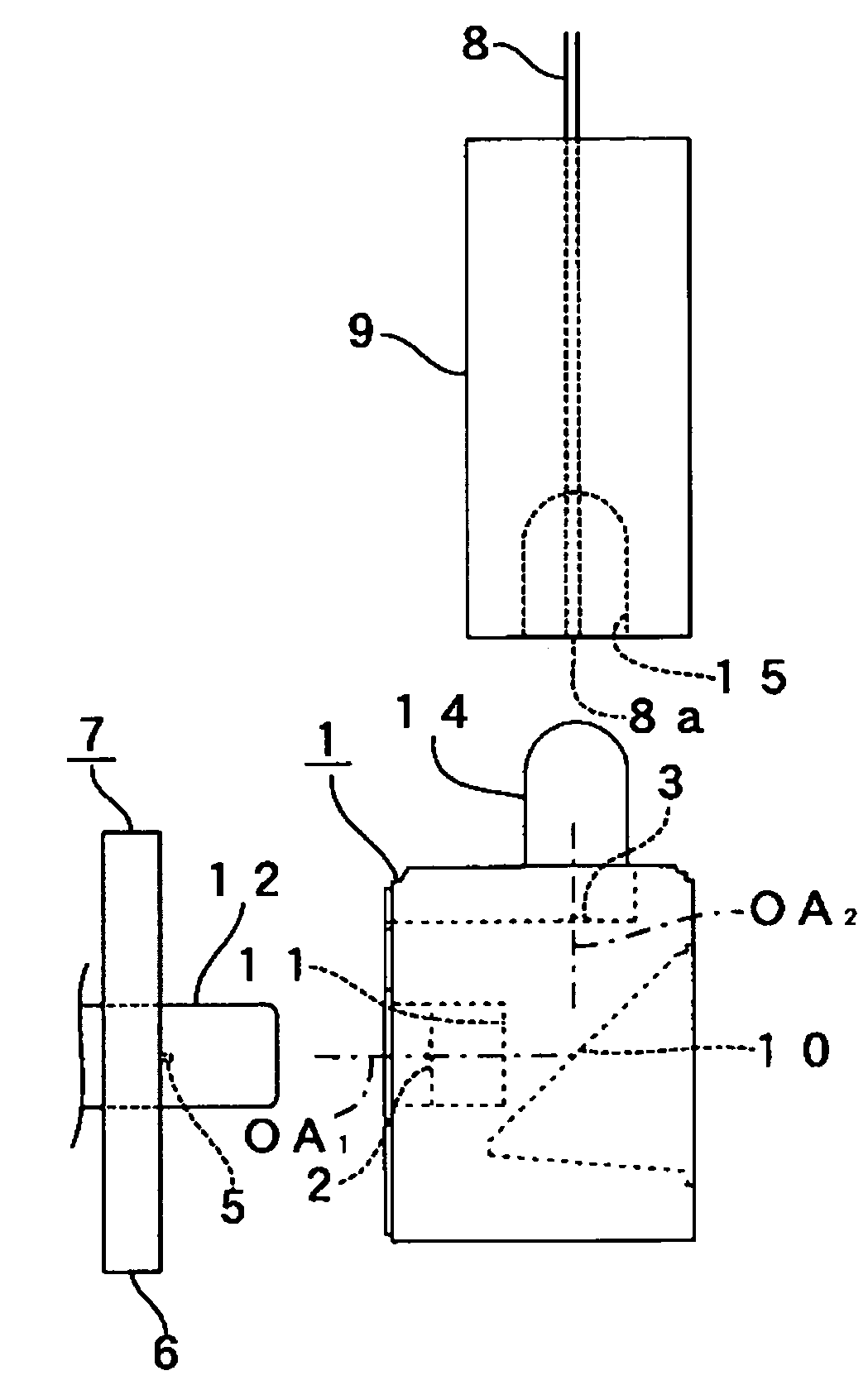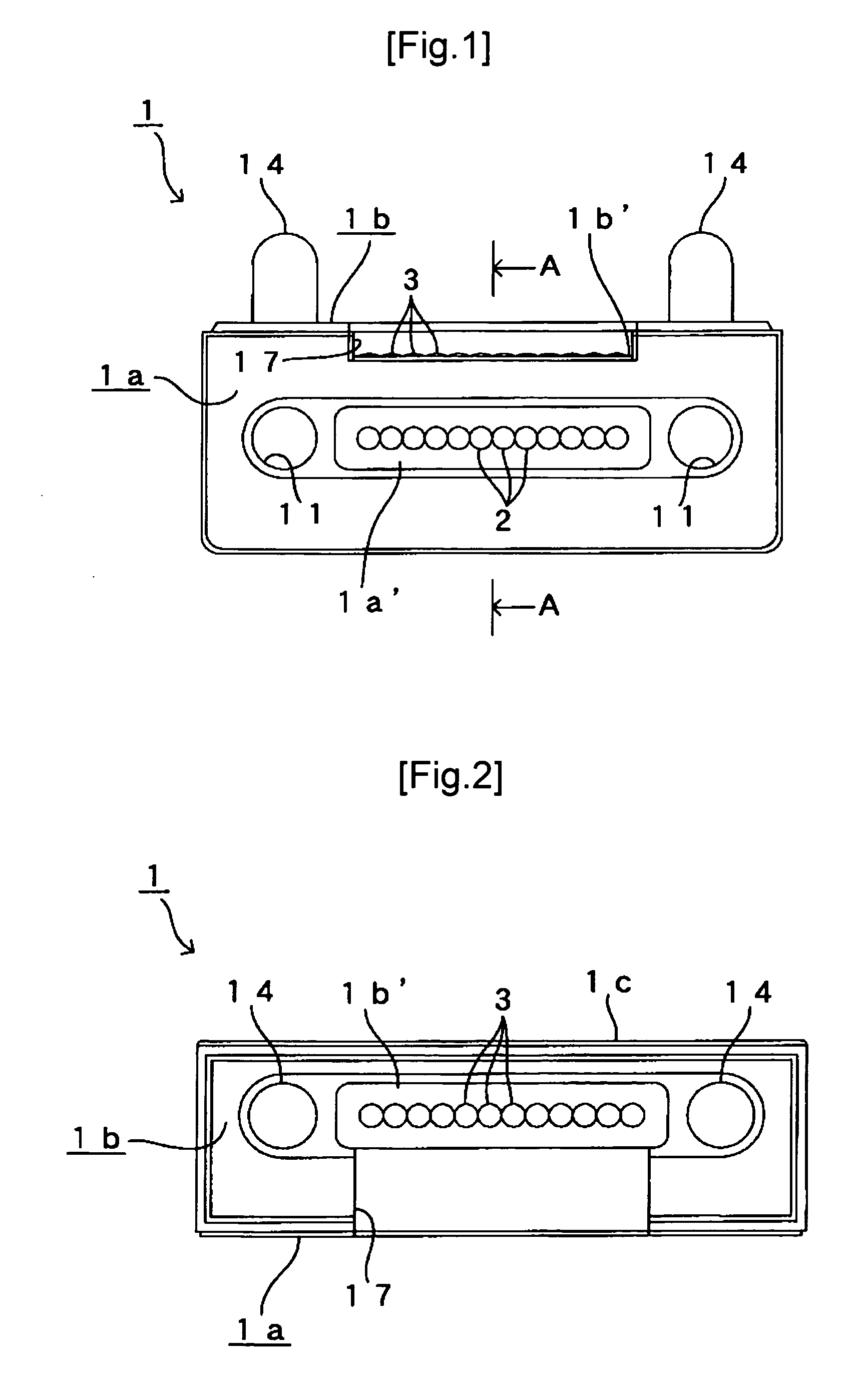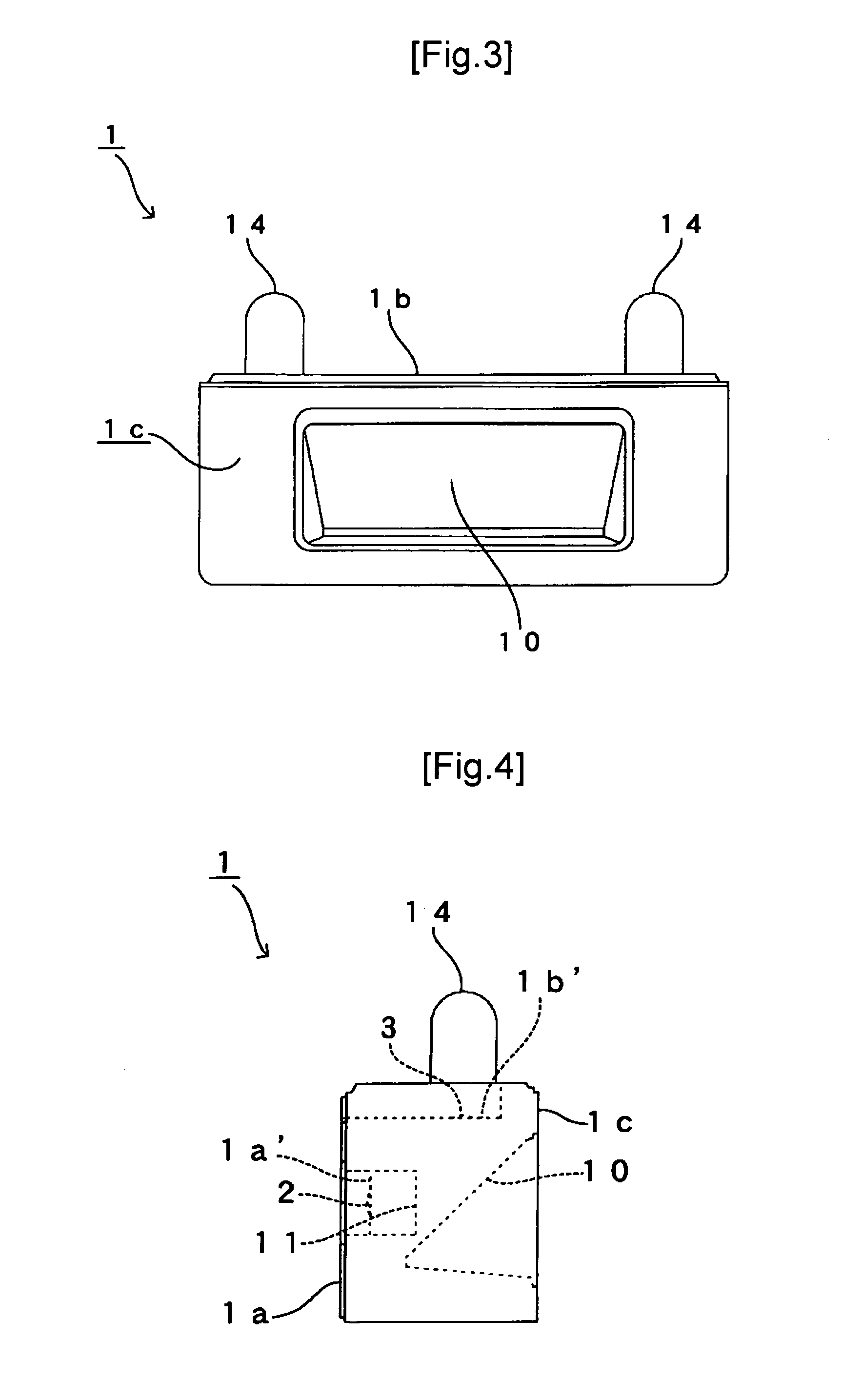Optically coupled device and optical module including optically coupled device
a technology of optical coupling and optical module, which is applied in the direction of optics, optical light guides, instruments, etc., can solve the problems of limited optical coupling efficiency, and insufficient positioning accuracy that is difficult to achieve by only mechanical operation, so as to reduce manufacturing costs, improve productivity, and facilitate and appropriately position the effect of photoelectric conversion devices
- Summary
- Abstract
- Description
- Claims
- Application Information
AI Technical Summary
Benefits of technology
Problems solved by technology
Method used
Image
Examples
first embodiment
[0053]An optically coupled device and an optical module according to a first embodiment of the present invention will be described below with reference to FIG. 1 to FIG. 8.
[0054]FIG. 1 is a front view of an optically coupled device 1 according to the first embodiment. FIG. 2 is a planar view of FIG. 1. FIG. 3 is a rear view of FIG. 1. FIG. 4 is a right-side view of FIG. 1. FIG. 5 is a cross-sectional view taken along line A-A in FIG. 1. FIG. 6 is an exploded right-side view of an optical module 4 according to the first embodiment.
[0055]The optically coupled device 1 according to the first embodiment is formed in a manner allowing each of a plurality of photoelectric conversion elements formed on a photoelectric conversion device and respective end surfaces of a plurality of multi-mode optical fibers corresponding to the photoelectric conversion elements to be optically coupled. The photoelectric conversion elements emit or receive light.
[0056]In other words, as shown in FIG. 1 to FI...
second embodiment
[0094]Next, an optically coupled device and an optical module according to a second embodiment of the present invention will be described with reference to FIG. 9.
[0095]Parts of the basic configuration that are the same or similar to those according to the first embodiment are given the same reference numbers and described.
[0096]A basic configuration of the optically coupled device 1 according to the second embodiment is similar to that according to the first embodiment. However, the optically coupled device 1 according to the second embodiment differs from that according to the first embodiment in that dimensional accuracy is more relaxed, thereby improving manufacturability. On the other hand, the optically coupled device 1 according to the second embodiment is designed to minimize labor involved with alignment should alignment of the photoelectric conversion device be required.
[0097]In other words, in the optically coupled device 1 according to the second embodiment, with the VCS...
PUM
 Login to View More
Login to View More Abstract
Description
Claims
Application Information
 Login to View More
Login to View More - R&D
- Intellectual Property
- Life Sciences
- Materials
- Tech Scout
- Unparalleled Data Quality
- Higher Quality Content
- 60% Fewer Hallucinations
Browse by: Latest US Patents, China's latest patents, Technical Efficacy Thesaurus, Application Domain, Technology Topic, Popular Technical Reports.
© 2025 PatSnap. All rights reserved.Legal|Privacy policy|Modern Slavery Act Transparency Statement|Sitemap|About US| Contact US: help@patsnap.com



